| |  | | | Islamic Supremacism in Dearborn; NATO & the Flotilla; The Middle East's Shifting Landscape By Winfield Myers ● Sep 26, 2025 Smart Brevity® count: 9 mins...2446 words Dexter Van Zile reports from Dearborn, Michigan, where one of its residents—a Christian pastor who, at a city council meeting, objected to his city's honoring a terrorist apologist—was told by its Shia Muslim mayor, "I want you to know as mayor, you are not welcome here." At a later council meeting the mayor refused to apologize for his exclusionary remarks. "When you live in this bubble [of Muslim-majority Dearborn]," said the pastor, "you forget you live in America and what the rules are." Gregg Roman argues that Italy and Spain's decision to provide naval escorts to the "Global Sumud Flotilla," which intends to challenge Israel's legal maritime blockade of Gaza, crosses the line "from humanitarian assistance to complicity in an illegal act." "This is not a protest," Roman warns; "it is a provocation with military consequences." Jonathan Spyer analyzes ongoing changes in the Middle East in light of "Israel's beleaguered diplomatic situation, deriving from the two-year war that began with Hamas's attacks on October 7, 2023." Other authors featured in this issue include Michael Rubin, Abhinav Pandya, Arun Anand, and Alshifa Imam. | | The New Jim Crow in Dearborn 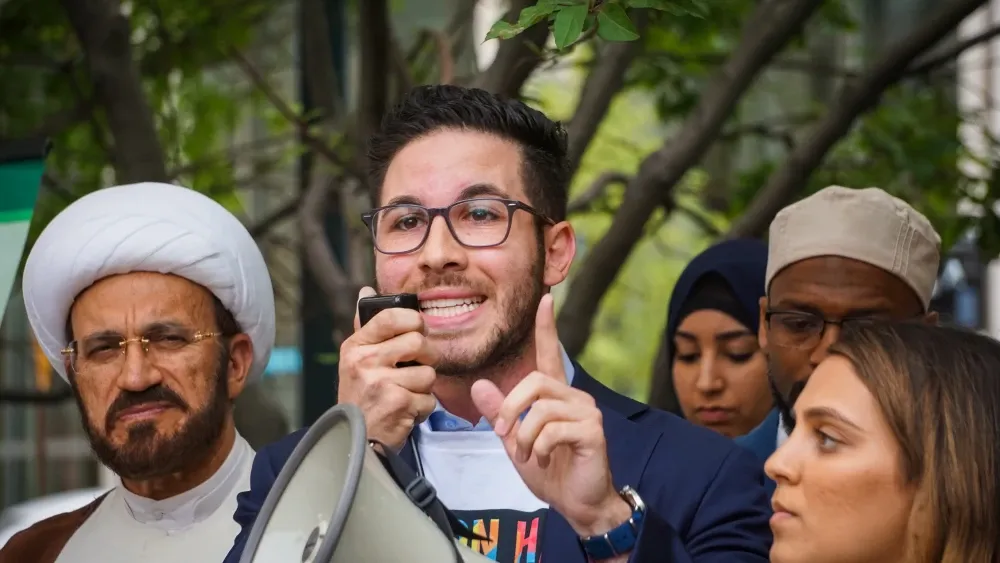 By: Dexter Van Zile Dearborn's Mayor Abdullah Hammoud is facing intense scrutiny for his bigoted response to a question from Dearborn resident and Christian evangelist Ted Barham. Why it matters: Hammoud's refusal to apologize and his inflammatory rhetoric have sparked concerns about bias in a city where 55 percent of the population is Muslim. Driving the news: The controversy flared when Barham objected to naming an intersection after Osama Siblani, a known supporter of the terrorist group Hezbollah. Hammoud responded harshly, stating, "I want you to know as mayor, you are not welcome here." -
Hammoud added: "And the day you move out of the city will be the day that I launch a parade celebrating the fact that you moved out of the city because you are not somebody who believes in coexistence." -
Hammoud's verbal attack was an attempt to use the language of coexistence and a narrative of Muslim victimhood to put an uppity non-Muslim in his place. The stakes: The way Barham frames it, the real issue is not that Muslims and Christians get along so well in Dearborn, but that Christians are treated so badly in Muslim-majority environments in the rest of the world. -
Speaking with Focus on Western Islamism (FWI), Barham stated that in his September 9 outburst Hammoud might have forgotten that the laws that govern relations between Muslims and non-Muslims in Muslim-majority environments do not apply to the United States. -
"I think when you live in this bubble [of Muslim-majority Dearborn], you forget you live in America and what the rules are," Barham said. If that's the case, then maybe Hammoud did Americans a favor by subjecting Barham to a small taste of the abuse Christians endure in many other countries in the world at the hands of Muslim leaders. To read the full article, click here. | | The Twelve-Mile Tripwire: How a Gaza Flotilla Escort Courts Disaster 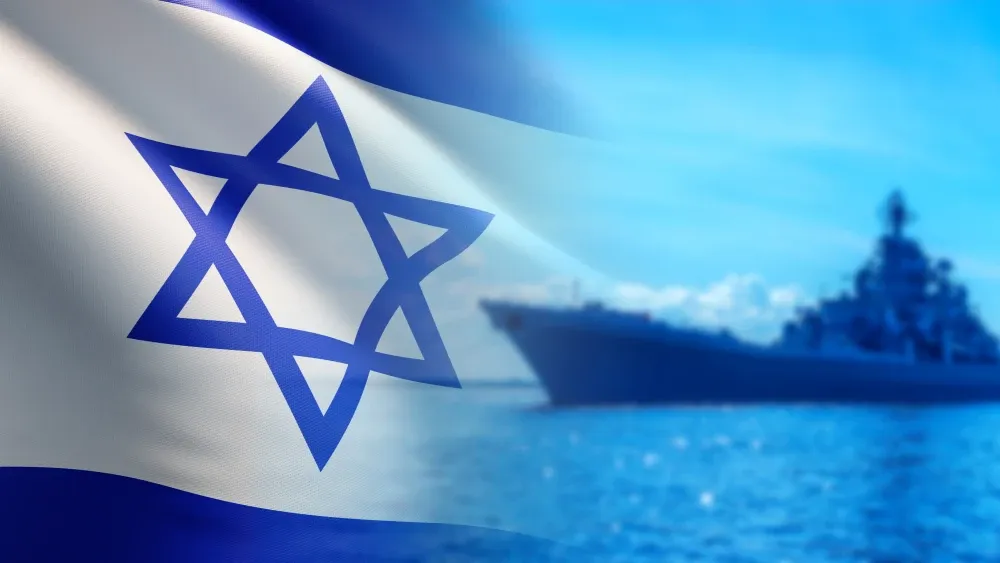 By: Gregg Roman Two NATO warships are escorting the "Global Sumud Flotilla" on a collision course with Israel's navy and international law. Why it matters: This isn't just a protest; it's a direct challenge to Israel's legitimate maritime blockade of Gaza, risking a military confrontation. The big picture: A 2011 U.N. report affirmed the blockade's legality, and the San Remo Manual authorizes Israel to intercept vessels breaching it. The stakes: Allowing this breach sets a dangerous precedent for future provocations, potentially exploiting humanitarian pretexts for military gain. -
The U.S. Sixth Fleet must clearly communicate to NATO allies that it will not support this illegal act. -
Israel must enforce its blockade with minimal force, prioritizing non-kinetic measures. -
The choice Rome and Madrid are making in the eastern Mediterranean today is not simply about this flotilla. It is a decision that will either reinforce the legal architecture of maritime security or hand a strategic victory to those who seek to dismantle it. To read the full article, click here. | | The Middle East's Power Game: Nations Hedge Bets in Volatile, Shifting Landscape  By: Jonathan Spyer On September 15, leaders from 57 countries convened in Doha for an "Emergency Arab-Islamic Summit" to address Israel's recent attack on Hamas leaders. Why it matters: The summit's communiqué condemns Israel's actions as "flagrant aggression," highlighting Israel's strained diplomatic position amid ongoing conflict with Hamas. Driving the news: The summit's response underscores the legitimacy and soft power challenges Israel faces as a non-Islamic state in a predominantly Arab region. The stakes: The absence of a cohesive pro-Western alliance leaves Israel to navigate a landscape where new players like China exploit diplomatic vacuums. Next steps: In the longer term, the foundations of common interest that underlay the Abraham Accords may still form the basis for a coming together of states jointly opposed to political Islam and jointly committed to prosperity and development. -
Israel appears determined to push forward and complete the destruction of Hamas in Gaza. Once this is achieved, if it is achieved, the work of the diplomats can begin again. -
For now, as the old Soviet saying has it, when the cannons roar, the muses are silent. To read the full article, click here. | | Hezbollah Is Bloodied but Far from Beaten 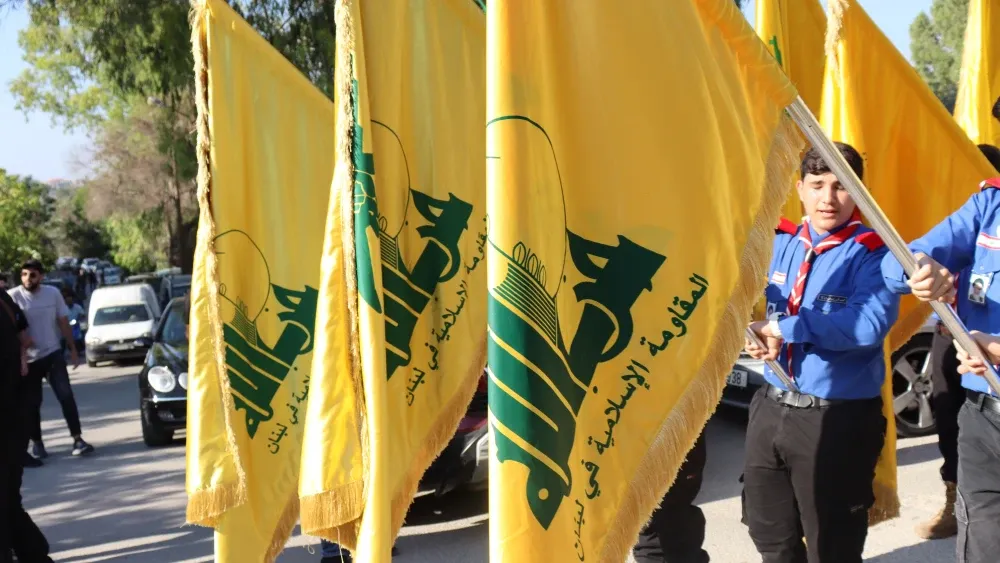 By: Michael Rubin Despite recent military setbacks, Hezbollah remains a formidable force in Lebanon, posing a continued threat to regional stability. Why it matters: Hezbollah's extensive financial networks in Africa and potential support from Turkey ensure it remains a significant threat. Driving the news: So long as Hezbollah remains armed, Lebanese President Joseph Aoun's sincerity notwithstanding, Lebanon is at risk for a renewed insurgency. -
Iran has not given up, and Hezbollah's new patron in Turkey is also keen to both bleed Israel and distract Aoun while Turkey expands its influence in Tripoli and northern Lebanon. -
With Iran's ambitions undeterred and Turkey's interest in Lebanon growing, the geopolitical landscape remains volatile. The stakes: If Aoun fails to disarm Hezbollah by the end of the year—and there will always be reasons both political and tactical to delay—then the group will return. -
Lebanese Armed Forces vehicles will face improvised explosive devices and Hezbollah snipers will terrorize those who seek to vote to change the order in the south. -
The Trump administration can help, both with diplomatic pressure on Aoun, assistance for the Lebanese Armed Forces that, for the first time, has an opportunity to rid itself of Hezbollah, and reconstruction of southern Lebanon, perhaps using several billion dollars sitting in Iranian accounts in Qatari banks. To read the full article, click here. | | India's Condemnation of Israeli Strikes on Qatar Is a Diplomatic Disaster 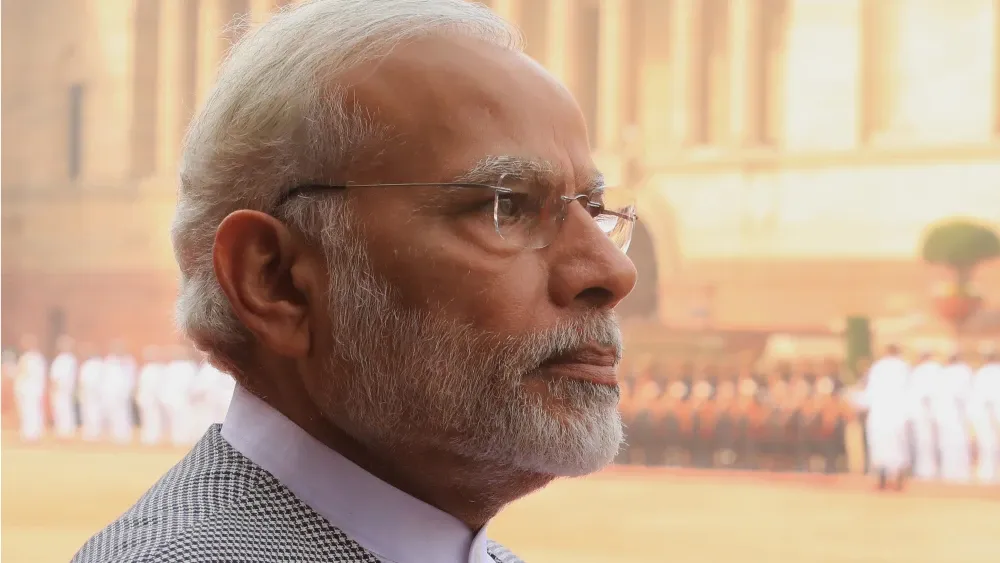 By: Abhinav Pandya India's condemnation of Israel's strikes on Hamas leaders in Qatar marks a significant diplomatic blunder, straining its relationship with a key ally. Why it matters: Indian Prime Minister Narendra Modi's stance appears influenced by his ties with Qatar, a critical LNG supplier and mediator for Indian Navy personnel. -
Despite Israel's support during the India-Pakistan conflict, this move highlights India's precarious diplomatic position amid deteriorating relations with the U.S., China, and Russia. Driving the news: Qatar's connection to Islamist charities and its biased media coverage against India complicate this relationship further. The stakes: India's move also highlights a contrast between Israel's popularity among the Bhartiya Janta Party's (BJP) Hindu voter base, and the BJP government's anti-Israel diplomatic stance on key Israeli interests. -
Given Qatar's role in fomenting anti-India Islamist organizations, a question arises: Is India's support for Qatar purely out of diplomatic considerations or extraneous factors? -
Qatar's inroads among India's bureaucratic and political elites cannot be ignored, especially considering Doha's history of influence campaigns through financial incentives to think tanks, diplomats, and journalists. To read the full article, click here. | | America Is Repeating Its Somalia Mistakes in Yemen 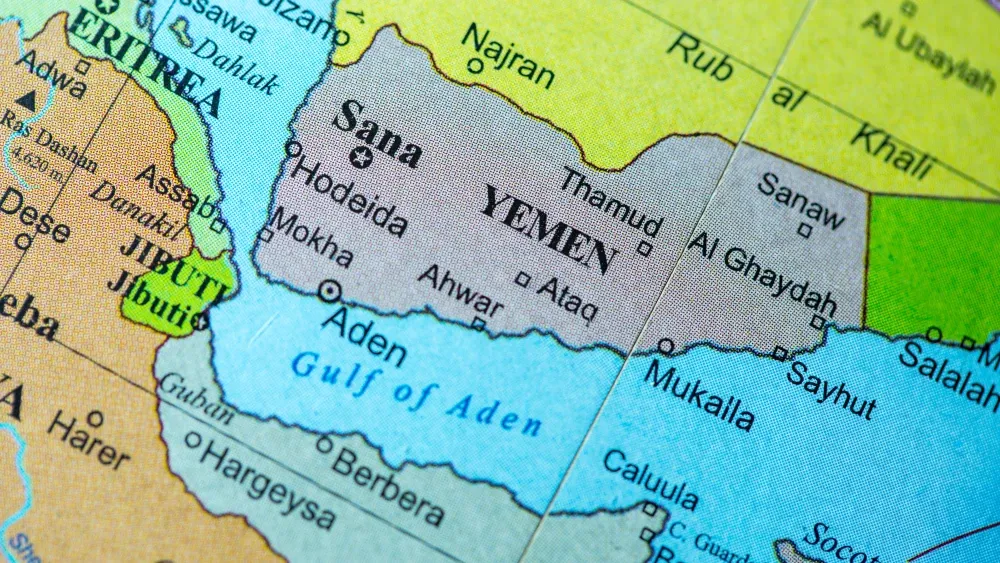 By: Michael Rubin As Somaliland thrives independently and South Yemen seeks stability, both regions face diplomatic neglect from the U.S. amid flawed "One Somalia" and "One Yemen" policies. Why it matters: Somaliland boasts a democratic, Western-oriented, and business-friendly climate, yet faces isolation due to outdated U.S. policies that favor Somalia's unity, disregarding its kleptocracy and ties with China. -
Similarly, South Yemen, despite its stable and secure environment, is treated as a pariah while the U.S. engages with corrupt Northern leadership aligned with Iran and Al Qaeda. Driving the news: The U.S. State Department's approach under Secretary of State Marco Rubio mirrors past mistakes in Yemen, overlooking Somaliland's and South Yemen's strategic alignment with Western interests. The stakes: Recognizing Somaliland and South Yemen could bolster U.S. interests by supporting regions that deny territory to terrorists and embrace democracy. To read the full article, click here. | | Is Turkey Pulling a Seabed Heist with Libya? Malta Sounds the Alarm 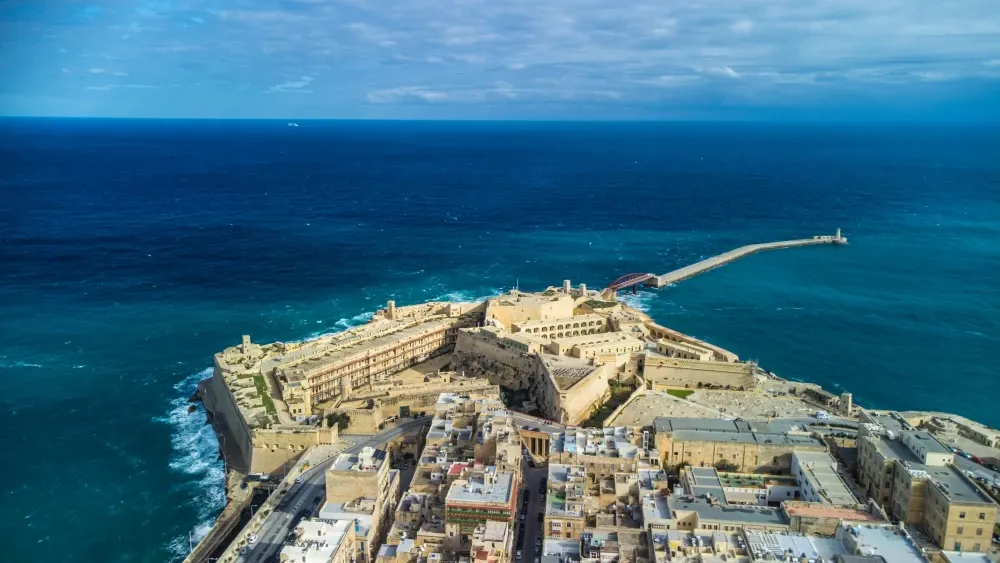 By: Amine Ayoub Malta's public rebuke of Libya's maritime moves is more than a small-state complaint; it highlights significant geopolitical fault lines in the eastern Mediterranean. Why it matters: This dispute exposes tensions in regional energy markets and international law, with Turkey's expanding influence at its core. Driving the news: The controversy stems from Libya's deepening energy partnership with Turkish companies, accelerating in 2025. The stakes: Malta's move is therefore instructive rather than exceptional. It crystallizes enduring questions—who gets to draw maritime maps, how small states defend rights against larger patrons, and whether multilateral law can keep pace with opportunistic, state-level realpolitik. To read the full article, click here. | | Why Saudi-Pakistan Mutual Defense Agreement Is More Rhetoric Than Reality 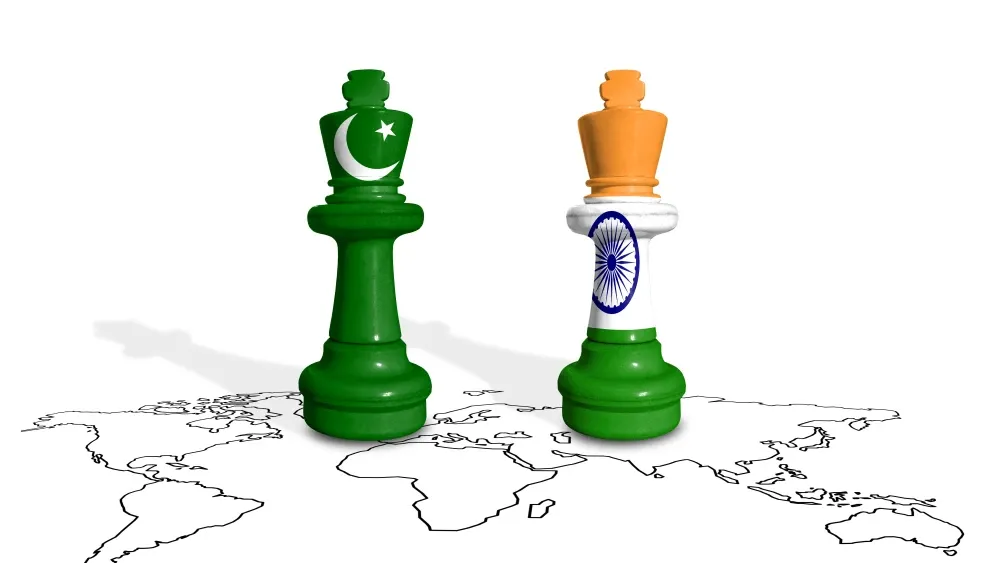 By: Arun Anand The "Strategic Mutual Defense Agreement" between Saudi Arabia and Pakistan, announced on September 17, mirrors past arrangements, underscoring a one-sided relationship. Why it matters: While Pakistan's military serves as Riyadh's insurance policy, Saudi Arabia has never reciprocated militarily, highlighting the transactional nature of their ties. Driving the news: Speculation about Pakistan extending its nuclear umbrella to Saudi Arabia persists, but the relationship remains grounded in financial transactions. The stakes: It is clear that this new Mutual Strategic Defense Agreement does not add anything new and is a reiteration of an old pattern of security guarantees in exchange for financial consideration. To read the full article, click here. | | Jirgas and the Crisis of Justice in Balochistan 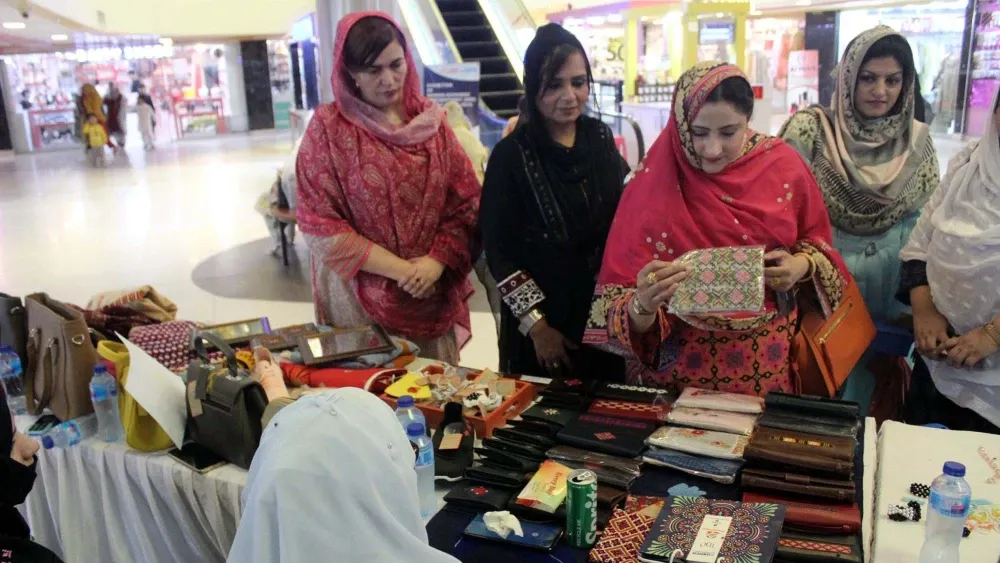 By: Alshifa Imam The recent execution of a young couple by a tribal jirga [council] in Balochistan highlights the stark clash between constitutional law and entrenched tribal customs. Why it matters: Despite legal bans, these parallel systems continue to dictate the most intimate aspects of life—marriage, inheritance, and women's autonomy—under the rigid banner of "honor." Across Pakistan, honor killings have claimed thousands of lives, disproportionately affecting women who dare to assert choice. -
The execution video of Ehsan Ullah Samalani and Bano Bibi went viral, prompting government action but underscoring the reactive nature of Pakistan's justice system. -
Despite a Supreme Court ruling outlawing jirgas in 2019, they continue to operate with implied legitimization, especially in remote regions where formal governance remains weak and absent. Driving the news: Social media has become a critical tool for demanding justice in a system dominated by male-centric tribal codes and inadequate legal support for victims. -
On January 27, 2025, a father and uncle murdered their 14-year-old, U.S.-born daughter, Hira Anwaar, over her social media activity. The family had recently returned from New York and allegedly objected to Hira's manner of dressing, friendships, and online presence. -
The Balochistan killings expose a fault line at the heart of Pakistan's justice system: the clash between constitutional law and entrenched tribal custom. This was not an exception but part of a broader pattern of impunity masked as tradition. The stakes: Until Pakistan reforms its justice system and dismantles parallel structures like jirgas, gender-based violence and impunity will persist. To read the full article, click here. | | The Sahwa Islamist Strategy to Survive Gulf Repression 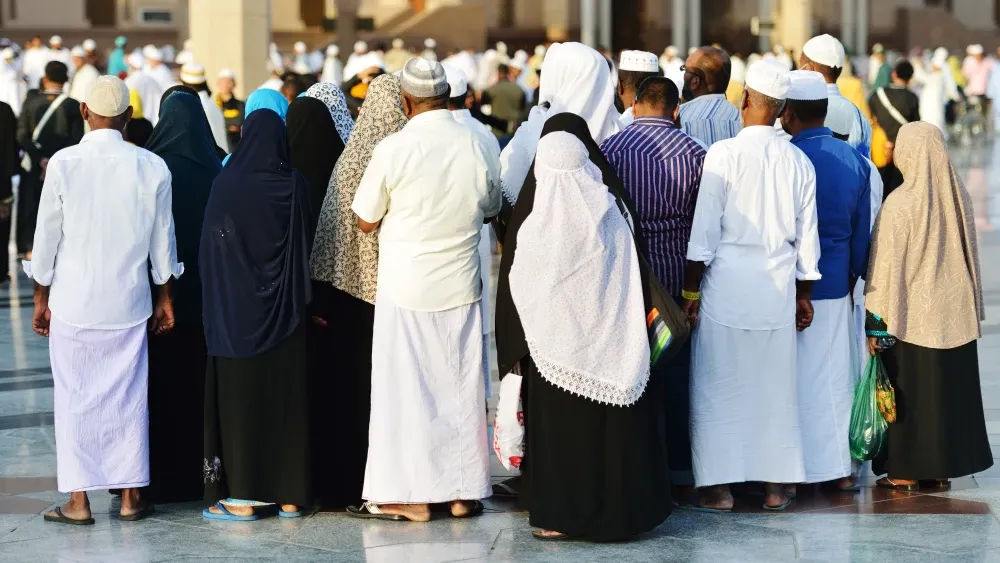 By: Mohammad Taha Ali Despite crackdowns, the al-Sahwa al-Islamiyya ("Islamic Awakening") movement and Muslim Brotherhood influence persist across the Gulf, adapting to survive. Why it matters: Originally a product of Saudi Arabia's refuge for Muslim Brotherhood refugees, these movements blend ideology with Salafi-Wahhabi practices, embedding themselves in social and educational networks. Driving the news: In Saudi Arabia, former Sahwa leaders now operate through sanctioned NGOs and education, while in Kuwait, Islamist parties maintain parliamentary presence. The stakes: The Gulf monarchies' coercion may limit outspoken clerics, but it doesn't diminish the movements' capacity to mobilize. To read the full article, click here. | | We appreciate your continued support for the Middle East Forum as we deliver critical analyses on Middle Eastern affairs. If you found this edition of the Dispatch useful, please share it with others and be sure to let us know your thoughts on our coverage via the comments feature. Sincerely, Winfield Myers
Managing Editor, Middle East Forum
Director, Campus Watch | | | | Was this edition useful?  

Your email will be recorded and shared with the sender |        MEF, an activist think tank, deals with the Middle East, Islamism, U.S. foreign policy, and related topics, urging bold measures to protect Americans and their allies. Pursuing its goals via intellectual and operational means, the Forum recurrently has policy ideas adopted by the U.S. government.
Copyright © 2024 Middle East Forum, All rights reserved.
Our mailing address is:
Middle East Forum
1650 Market Street, Suite 3600
Philadelphia, PA 19103 | | | | | Powered by 
| | This email was sent by Middle East Forum via Axios HQ | | | |
0 коммент.:
Отправить комментарий